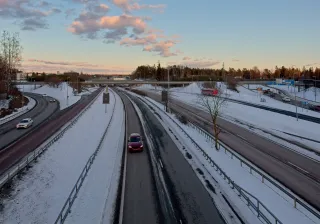In FCAI’s recent webinar professionals came together to discuss AI enabling new, more sustainable solutions for cities and transport.
We are in great need of new solutions for ecological, social as well as economic sustainability and UN has defined 17 sustainable development goals demanding immediate action. In achieving all this, artificial intelligence could be the key enabler, but how?
Cities and transport are major contributors to CO2 emissions and our current mobility systems are far from sustainable. They are not only one of the most polluting sectors, but also looking at the amount of road traffic accidents, a threat to security. AI could revolutionize this by enabling for example optimized routing, new transportation modes and autonomous driving, reducing at the same time human errors as well as cut down emissions. But to make this happen, we need data, which is reliable, non-biased, fairly shared and privacy guaranteed.
We need a neutral city network to serve as a digital backbone for smart cities, and a neutral hosted data platform for creating new digital services on top of it. In addition, technological development based on AI is not enough unless we have a service that can be sold.
Cutting down carbon emissions in smart cities requires a shift away from private car ownership. At the same time, there is an ongoing transformation with electrical vehicles. The number of electric cars is expected to grow exponentially, and this also creates a need for AI-based solutions. AI can also support designers in decision-making by giving them recommendations.
So, there is a lot to unpack with the possibilities with artificial intelligence. How can we achieve all this and what obstacles we must tackle in order to do so? Is it soon-to-be reality or only a glimpse from distant future?
Read more from the full article, what the experts have to say!



